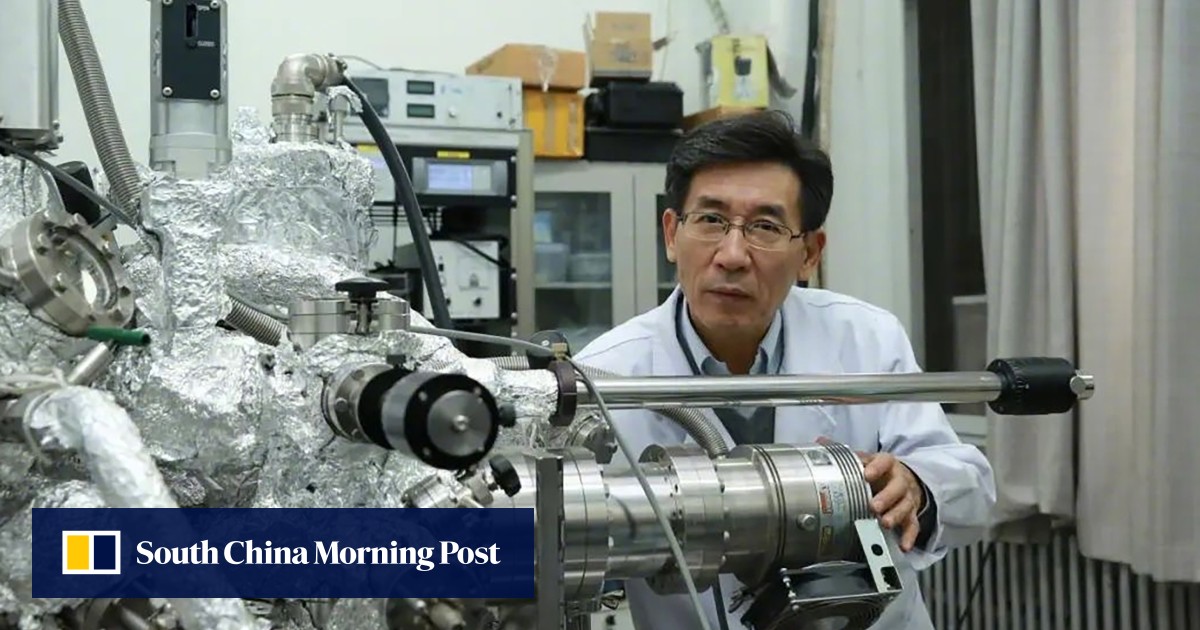beijingwalker
ELITE MEMBER

- Joined
- Nov 4, 2011
- Messages
- 65,191
- Reaction score
- -55
- Country
- Location
Chinese scientist makes history by winning the US’ top physics prize
- Xue Oikun’s groundbreaking work on the next generation of electronics recognised with prestigious American Physical Society award
- The physicist is the first Chinese citizen to receive the Oliver E. Buckley Condensed Matter Physics Prize in its 70-year history
Physicist Xue Qikun from Tsinghua University has become the first Chinese scientist to receive the United States’ most prestigious physics award since its inception 70 years ago.
The American Physical Society’s 2024 Oliver E. Buckley Condensed Matter Physics Prize was awarded jointly to Xue and Harvard University’s Ashvin Vishwanath on Tuesday.
Xue has been working with his university team to synthesise topological insulators – a class of materials that exists in a recently discovered state of quantum matter – for the development of next-generation, low-energy consumption electronics.
Unlike conventional materials, a topological insulator’s interior insulates while its surface conducts electricity without heat loss, making it an ideal candidate for the efficient electronics of the future.
Xue and Vishwanath were recognised for their “groundbreaking theoretical and experimental studies on the collective electronic properties of materials that reflect topological aspects of their band structure”, the society said.
Endowed by AT&T Bell Laboratories in 1952, the US$20,000 prize – to be shared by the two recipients – is seen as the highest award in condensed matter physics, a branch of the discipline that explores the macroscopic and microscopic properties of matter.
While Washington has been increasing the number of sanctions on China’s hi-tech companies and research institutes, there have been growing calls from some US researchers to strengthen collaboration with China.
Xue has been a world-leading researcher on topological insulators for more than a decade, winning numerous awards for his work, including the Future Science Prize for Physical Science in 2016 and the Fritz London Memorial Prize in 2020.
He was elected as a member of the Chinese Academy of Sciences in 2005, the same year he joined Tsinghua University, where in 2013 his team was first to report an experimental observation of topological insulation – beating competitors in Japan, Germany and the US.
The breakthrough was hailed as “the first Nobel Prize-level physics experiment conducted in a Chinese lab” by Chen-Ning Yang, who shared the Nobel Prize in Physics with Tsung-Dao Lee in 1957.
Xue and his team based their study on more than 1,000 samples of very thin films of mainly bismuth, stibium and tellurium, synthesised over four years.

The findings, published in Science magazine, showed that topological insulators could work without any external magnetic field, making them more promising for future applications.
Xue, who also serves as vice-president of the Chinese Physical Society, had a bumpy start to his scientific career, according to an interview he gave to state broadcaster CCTV in 2018.
He came from a rural family in Shandong province and went to a school where desks were made of chopped trees and the pupils brought their own chairs from home, Xue said.
In 1984, after earning his bachelor’s degree in physics from Shandong University, Xue failed the graduate programme entrance exam twice before he was admitted into the Chinese Academy of Sciences’ Institute of Physics.
Xue told CCTV that during his doctoral training in Japan, at Tohoku University in Sendai, he had to learn Japanese while working in the lab for 16 hours a day, six days a week.
“It was really challenging, but I managed to complete a very important experiment the following year, which became a turning point in my career,” he said.
Xue was also a visiting assistant professor at North Carolina State University in the US before securing a tenure position at the Chinese Academy of Sciences in 1999.
“My number one mission now is to help China train the most competitive talent, so they can use science to build the country into a powerhouse,” Xue said in the CCTV interview.

Chinese scientist makes history by winning the US’ top physics prize
Xue Qikun’s groundbreaking work on the next generation of electronics recognised with prestigious American Physical Society award.


